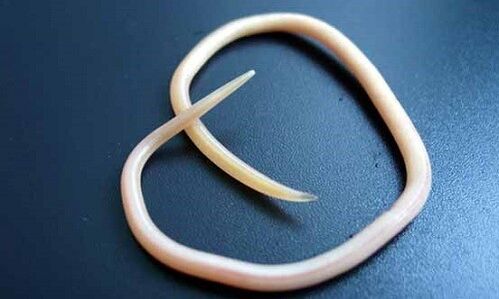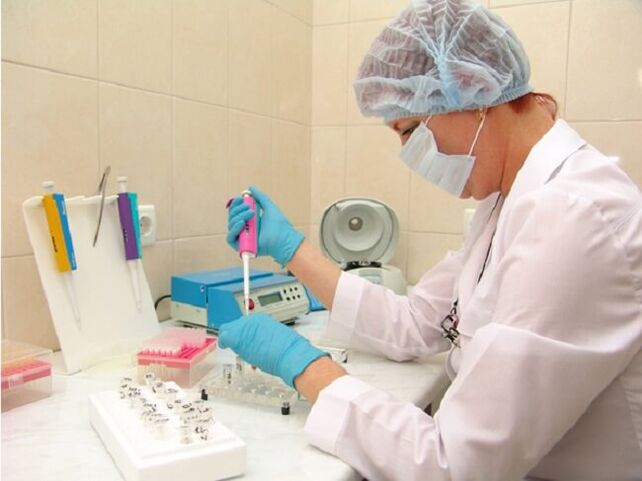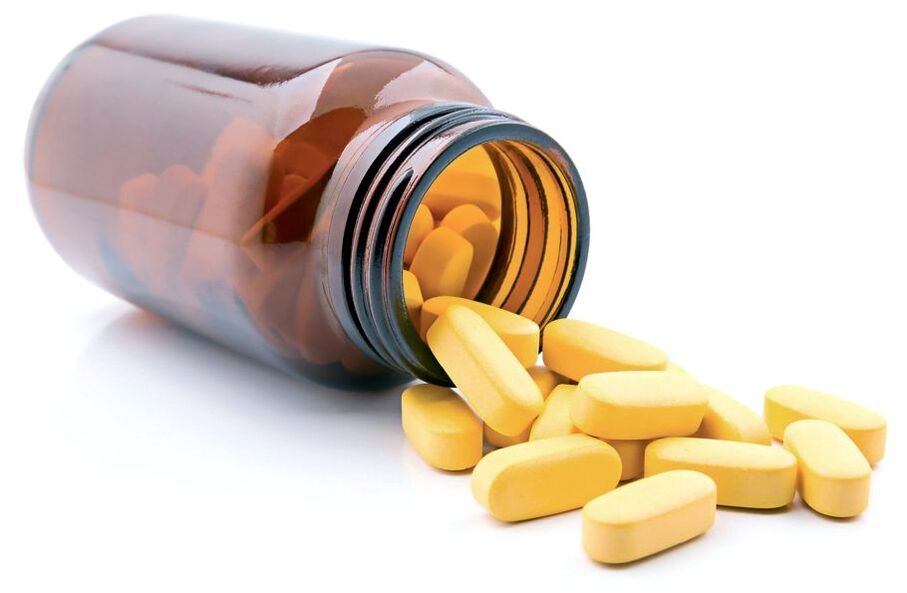
The symptoms of parasites in the body are varied. Parasites are so adapted to life in the human body and make it their home that a person simply does not notice them. At the same time, however, he also recognizes some other symptoms of common diseases under which protozoa can camouflage themselves. These signs serve as indirect signals that "uninvited" guests have settled inside.

Helminths and other microorganisms live, feed and reproduce in the human body. They inhabit skin, eyes, hair and other internal organs. And only such signs of the presence of parasites as constantly felt fatigue or obesity can be evidence that a person still has worms.
Science has reliably discovered more than 250 species of different worms that can inhabit not only the human intestines, but also his liver, lungs, heart, brain and other organs of the body. The facts of medical statistics are relentless: More than 95% of the world's population is infected with parasites. That is, each person is practically not considered an exception. Other research has shown that the source of 4/5 of all infections and cancers are toxins released during the vital activity of parasitic organisms. Every year 15 million people in the world die precisely because of infection with a parasitic infection that eventually kills them.
Therefore, doctors advise all people who have long-standing pathological processes and for whom traditional treatment does not help to carry out purification from parasites.
Common symptoms of the presence of parasites in the body
However, in order not to approach the matter unreasonably, it is worth knowing the symptoms of helminths:
- weakness from anemia that cannot be treated with medication;
- a strong exhaustion of the body, a constantly arising feeling of hunger;
- spontaneous weight gain, increased hunger, difficulty losing weight;
- migraines and pains in the head of unknown nature;
- frequent diarrhea and constipation replacing each other;
- Diseases of the gastrointestinal tract, the phenomenon of a "nervous" stomach;
- a constantly occurring feeling of heaviness on the right in the hypochondrium zone;
- joint pain (mistaken for arthritis), sore muscles;
- multiple skin defects: from acne to seborrhea, neurodermatitis, psoriasis;
- decreased immunity, which leads to frequent colds and diseases of an infectious-viral nature, often signs of herpes;
- allergic reactions of the body to various substances-allergens;
- a nervous condition, accompanied by chronic fatigue, occurs as a result of insufficient intake of valuable elements and vitamins A and B12 from food;
- poor working capacity, instant fatigue, lethargy during physical and mental activity;
- Sleep disorders.
Symptoms of parasites in the body include heart disease and cancer.
Taken individually, a sign may not be indicative of the presence of helminths and other protozoa in the body. If there are several from their list, be sure to be sure of the presence/absence of worms by passing the diagnosis. And if they are still there, the body needs to start cleaning immediately.
Infestation by parasitic organisms can be defined as follows:
- Visually judge a person's appearance from the outside. Externally, multiple pimples, freckles, acne, roughness and pallor of the skin, early facial wrinkles, spots, papillomas, peeling and breaking of the nail plate and cracked heels can be noted on the body. All of these diseases of the outer skin of the body are the result of infection of the gastrointestinal tract with Trichomonas, Giardia and other protozoa. However, there is often a "bouquet" of them.
- With enterobiasis infection (pinworm infection) in a child, such external manifestations can be observed as: stunted growth, underdevelopment of the earlobes, shortened fingers (fingers are shorter than the length of the palm), the ring finger sticks out more than average, tightness of the forehead, sparse hair, her prolapse, mismatched eyes. After examining your own tongue and seeing a white coating on it, which is nothing more than Candida fungi, you can see that the latter lines the walls of the intestine, esophagus and the mucous membranes of the gastrointestinal tract. The case of removing plaque from the tongue when brushing your teeth will not bring any result, so it is better to abandon these unsuccessful attempts.
- Analyze the performance of the whole organism and identify all pathogenic factors in it. Symptoms of damage to the female body: pain and inflammation in the ovaries, prolonged periods of severe pain and general weakness, failures (or shifts) in the timing of the menstrual cycle. After that, fibroma, myoma, cystic fibrosis, and inflammatory processes in the bladder, adrenal glands and kidneys gradually follow.
Manifestations of the presence of parasitic infections in men: prostatitis and impotence, followed by adenomas, stones and sand in the kidneys and bladder, cystitis. Mental disorders are possible as a result of infection.
Diagnosis of parasites in the body

At the same time, a person's organism can be populated from one variety to several dozen microorganisms. Modern medicine has several methods of proving the existence of protozoa in the human body.
- Most often, in a polyclinic, the presence is determined by analyzing feces on the worm egg. But the possibilities of this diagnostic in terms of effectiveness are very small, since it shows the result only in 15-17% of cases. Conduct other methods of diagnosing helminths.
- Histological co-program. A thin section of faeces prepared using special techniques is examined using the most powerful microscopes. With it, particles of the bodies of parasites, their eggs with larvae, are clearly recognized. Allows you to give an opinion on the type of worms found and choose the appropriate treatment option.
- Immunological (serological) examination allows you to determine the presence in the human body of antibodies and antigens to helminths as a result of a blood test. Diagnostics shows a high effect only in the later stages of the carrier of a parasitic infection. His results are reliable only 60% of the time.
- hemoscanning. Depicts the study of blood structure by scanning a "live" drop of blood magnified approximately 2000x. Using this method, it is possible to assess the condition of blood cells, the presence of bacterial and fungal flora and worm larvae.
- method of electroacupuncture. This method has been little studied by classical medical science. The examination is carried out using special electrical devices and their electrical effect on the body.
Options for treating and cleansing the body of infections

Conventionally, all anthelmintics are divided into several groups: chemicals, herbal medicines and homeopathic remedies. More about each type of treatment separately.
- chemical medicines. They are highly effective and provide quick results in a month or two. However, their toxic effect is noted not only on worms, but also on the human body. Among other things, parasites have learned to adapt to chemicals, so the effect may not be the same as expected. The destructive effect of a drug with a name is only calculated against one or two types of parasites. Chemical pills cause many complications and side effects.
- herbal medicine. Collections of herbs or extracts thereof. Through them, a high concentration of plant toxins is achieved in the body, which are poorly tolerated by helminths. The latter are therefore forced to leave their "home" - the human body. Through herbal preparations it is also possible to strengthen the protective properties of the immune system. Safety for humans is ensured by them, while parasites have a very low ability to adapt tothey have The course of treatment with herbal remedies for protozoa can last a month or even a year.
- homeopathic preparations. The minimum duration for treatment with homeopathic remedies is increased to three months. The maximum duration of treatment is one year. Efficacy is determined by the doctor's qualification, his ability to correctly select the remedy. Even minor errors in the treatment regimen can lead to zero results.
Folk method of getting rid of parasitic infections
The predominant treatment of parasites with folk methods is the use of herbs with bitter and antimicrobial effects.
These include, in particular, tansy, wormwood, celandine, elecampane roots.
The first stage of treatment consists in taking herbal medicines with bitterness, creating unsuitable living conditions for the simplest. Such antiparasitic drugs from plants can be used for a long time without harming the body.
The next step is taking herbal immunomodulators and agents that restore the balance of vitamins with trace elements that normalize the functions of the gastrointestinal tract and strengthen the immune system.
There are enough recipes among the people from worms.
Before treating them, you must consult a doctor.
Since some herbs can provoke the development of intoxication in the body.








































